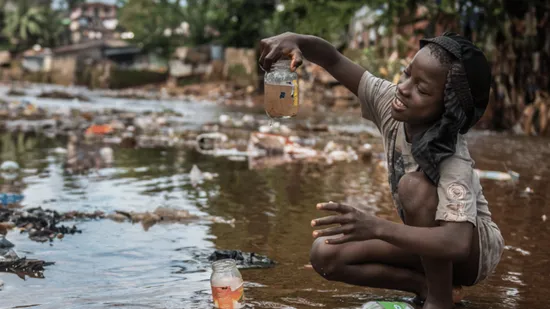Cholera, an acute diarrheal infection, may sound like a relic of the past, but it remains a global health threat. Caused by the bacterium Vibrio cholerae, cholera thrives in areas with poor sanitation and contaminated water sources. While treatable, cholera can be deadly if left unchecked, causing severe dehydration within hours.
Here’s a breakdown of what you need to know about cholera:
Transmission: Consuming contaminated food or water is the primary route of transmission. This happens when water sources are polluted with faecal matter containing cholera bacteria.
Symptoms: Cholera can cause extreme watery diarrhoea, vomiting, and muscle cramps. Dehydration sets in rapidly, leading to weakness, dizziness, and even death if left untreated. However, many infected individuals experience no symptoms at all, unknowingly carrying and shedding the bacteria.
Risk Factors: Anyone can contract cholera, but young children and malnourished individuals are more susceptible to severe illness. Areas with inadequate sanitation, overcrowding, and recent natural disasters are at higher risk of outbreaks.
Prevention: Cholera is highly preventable. Simple measures like ensuring access to clean water, proper sanitation, and good hygiene practices significantly reduce the risk. Vaccines are also available and can provide short-term protection.
Treatment: Early diagnosis and rehydration are crucial for cholera treatment. Oral rehydration solution (ORS) is the first line of defense, replenishing fluids and electrolytes lost through diarrhoea. In severe cases, intravenous fluids and antibiotics may be necessary.
Global Impact: The World Health Organisation (WHO) estimates that annually, there are 1.3 to 4 million cholera cases and 21,000 to 143,000 deaths globally. Cholera outbreaks are a stark reminder of the need for improved sanitation and access to clean water in many parts of the world.
Looking Forward: Combating cholera requires a multi-pronged approach. Investing in clean water infrastructure, promoting sanitation practices, and encouraging vaccination are all essential steps. International collaboration and improved surveillance are crucial for early detection and rapid response to outbreaks.
Remember: Cholera is a preventable disease. By prioritising clean water, sanitation, and hygiene, we can significantly reduce the burden of cholera and protect vulnerable communities worldwide.

